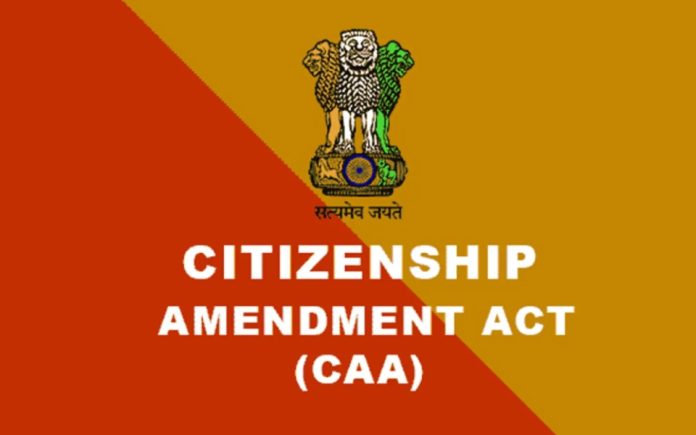CAA: As expected, in preparation for the 2024 General Elections, the government officially issued the regulations for the implementation of the controversial Citizenship (Amendment) Act (CAA) 2019 on Monday. This move clears the path for providing citizenship to undocumented non-Muslim migrants from Pakistan, Bangladesh, and Afghanistan.
Under the newly issued CAA regulations, the Modi-led government will initiate the process of granting Indian nationality to persecuted non-Muslim migrants from the mentioned countries who entered India on or before December 31, 2014. This includes individuals from religious minorities such as Christians, Parsis, Buddhists, Jains, Sikhs, and Hindus.
What is CAA?
The Citizenship Amendment Act (CAA) is crafted to provide protection to individuals seeking refuge in India due to religious persecution, shielding them from illegal migration proceedings. Eligibility for citizenship under the CAA requires applicants to have entered India on or before December 31, 2014. Presently, Indian citizenship is conferred upon those born in India or individuals who have resided in the country for a minimum of 11 years. The proposed amendment additionally incorporates a provision allowing the cancellation of Overseas Citizen of India (OCI) registration if the OCI cardholder breaches any provision of the Citizenship Act or other relevant laws.
Who does CAA leave out?
The controversy surrounding the Citizenship Amendment Act (CAA) since 2019 stems from the argument by leading opposition parties that the law is discriminatory as it appears to target Muslims, constituting approximately 15% of the country’s population. The government’s explanation is rooted in the fact that Pakistan, Afghanistan, and Bangladesh are Islamic republics with a Muslim majority, leading to the exclusion of Muslims from the persecuted minorities eligible for citizenship under the CAA. Nevertheless, the government assures that applications from other communities will be assessed on a case-by-case basis.
How can migrants apply for citizenship?
As the entire process is set to be conducted online, the Ministry of Home Affairs has developed a user-friendly portal to facilitate applicants. To initiate the process, applicants are required to disclose the year in which they entered India without proper documentation.
Importantly, applicants will not be required to submit any documents during the application process. The online portal aims to streamline the application procedure and provide ease of access for those seeking citizenship under the Citizenship Amendment Act (CAA).
Why has the Opposition been up in arms against it?
The controversial Citizenship Amendment Act (CAA), enacted in December 2019, has been met with opposition and protests nationwide, with many opposition parties condemning it as “discriminatory.”
The Congress party has expressed concerns about the timing of the rule notification, alleging that it is a deliberate move to polarize the upcoming Lok Sabha elections in West Bengal and Assam. Jairam Ramesh, Congress general secretary, accused the government of attempting to divert attention following the Supreme Court’s recent comments on the electoral bonds issue.
In Kerala, Chief Minister Vijayan declared that the CAA would not be implemented in the state, describing it as a law that promotes communal division.
The anti-CAA protests, followed by police action, resulted in the loss of more than 100 lives.
The timing of notifying rules
Regarding the timing of notifying rules, the CAA was passed nearly four years ago, and according to the manual of parliamentary procedures, rules for any legislation should have been framed within six months of presidential assent or sought an extension from the Committees on Subordinate Legislation in both houses of Parliament. Since 2020, the home ministry has been seeking extensions at regular intervals from parliamentary committees for framing the rules.
It was only in December 2023 that Union Home Minister Amit Shah emphasized that no one could stop the implementation of the CAA, stating it is the law of the land and a commitment of the BJP to implement it. The timing of the notification is also viewed in light of the imminent announcement of Lok Sabha polls, with the Model Code of Conduct likely to be implemented soon.
While no specific figure has been provided, the annual report of the Ministry of Home Affairs for 2021-22 reveals that from April 1, 2021, to December 31, 2021, a total of 1,414 foreigners belonging to non-Muslim minority communities from Pakistan, Bangladesh, and Afghanistan were granted Indian citizenship by registration or naturalization under the Citizenship Act, 1955. The Citizenship Act of 1955 facilitates Indian citizenship for non-Muslim minorities from these countries through registration or naturalization in nine states: Gujarat, Rajasthan, Chhattisgarh, Haryana, Punjab, Madhya Pradesh, Uttar Pradesh, Delhi, and Maharashtra.

